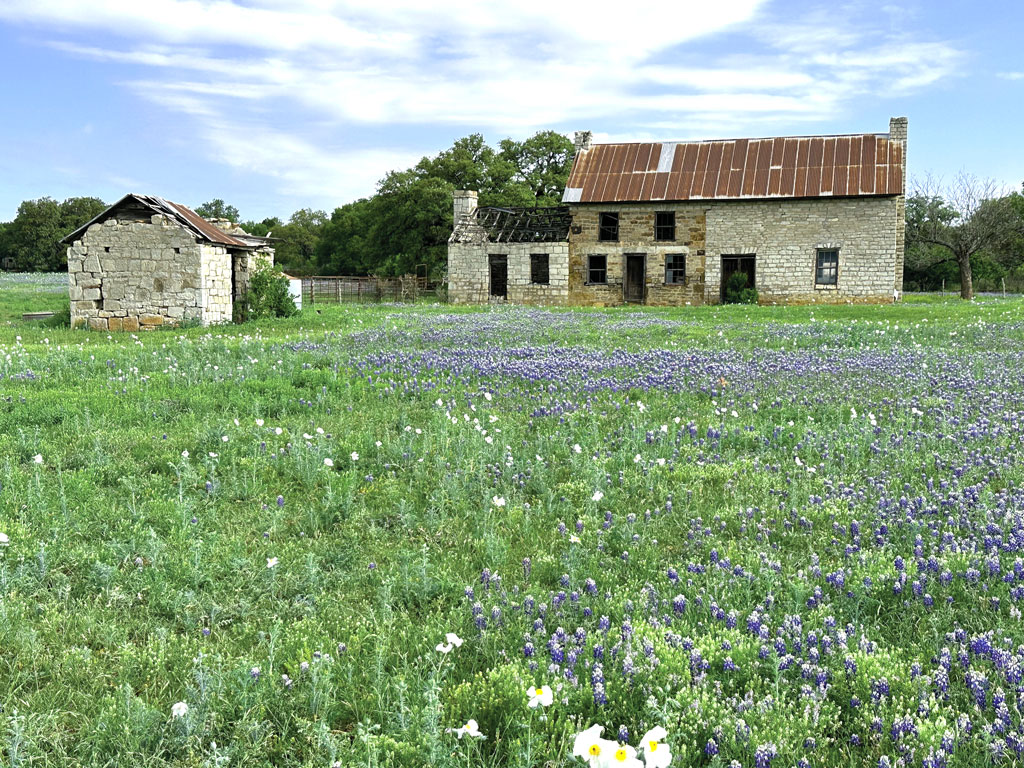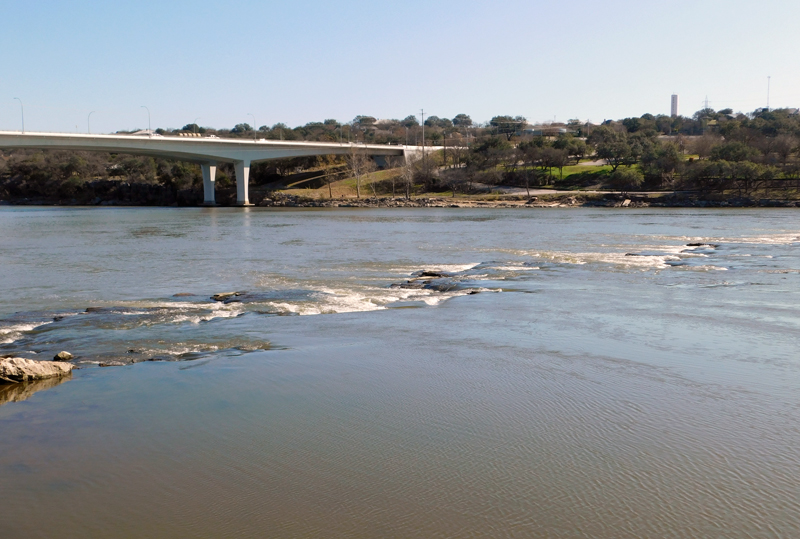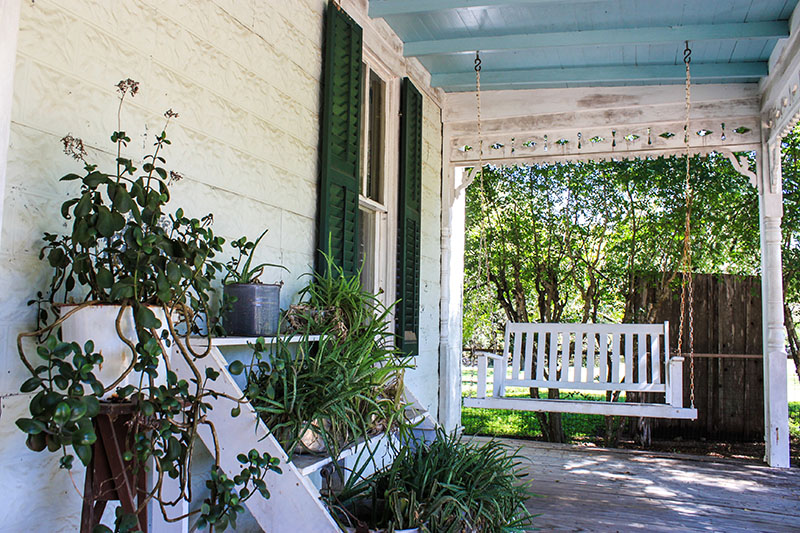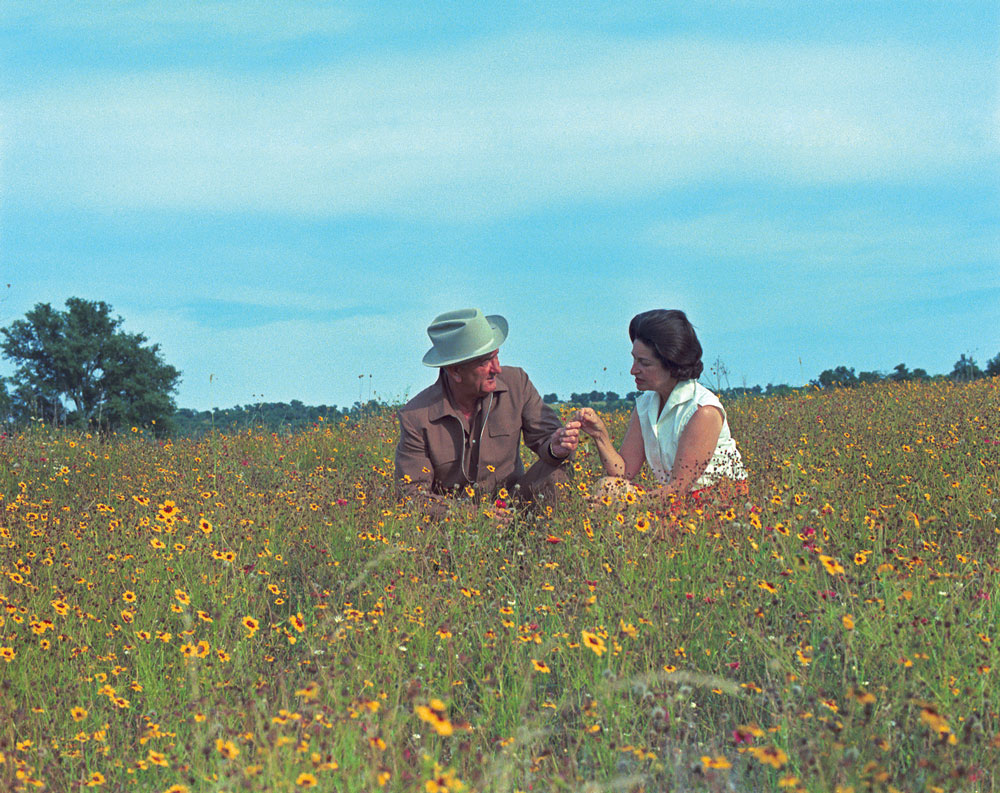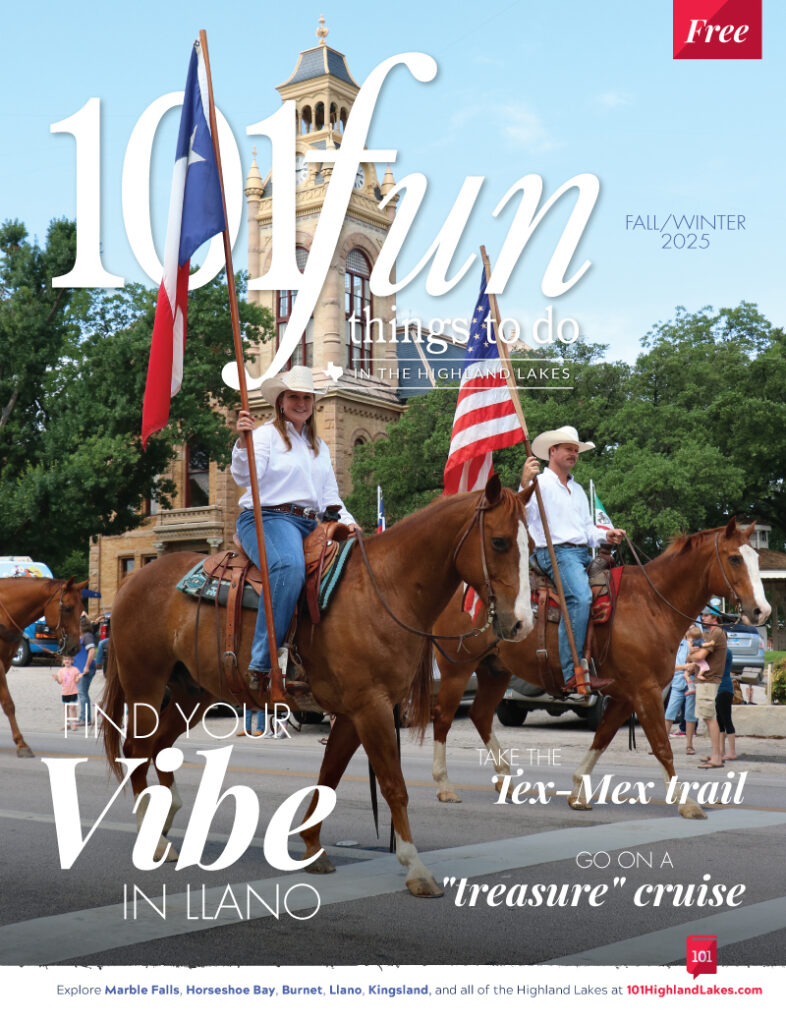
Members of the Burnam family and the Burnet County Historical Commission dedicated a marker honoring the life and contributions of Jesse Burnam, an early Burnet County pioneer, on June 13, 2015. Courtesy photo
There’s a popular saying that goes something like this: “I wasn’t born in Texas, but I got here as fast as I could.” Jesse Burnam, a Kentucky native, never heard those words, but after arriving in the Texas territory in 1812, he helped shape it into the Lone Star State that so many non-Texans still flock to.
His legacy still thrives in Burnet County with numerous descendants making a difference in the community.
On June 13, 2015, his descendants as well as the Burnet County Historical Commission recognized Burnam with the dedication of a historical marker at the intersection of County Road 401 and Texas 71. Descendents Sam and Trina Burnam hosted a reception at their home after the ceremony.
“He was a pioneer in Burnet County just about the time the county was being formed,” said JoAnn Myers of the Burnet County Historical Commission. “And he wasn’t just somebody who helped (create) Burnet County, he was one of the men who helped create Texas.”
Burnam was no stranger to conflict. He first served the United States during the War of 1812 against the British. He fought under then-Gen. Andrew Jackson in the Battle of New Orleans, which prevented the British from regaining a foothold at the mouth of the Mississippi River.
In 1821, Burnam and then-wife Temperance Null Baker settled in Texas, the 13th of the 300 families for which Stephen F. Austin obtained land grants from the Spanish government. They lived along the Colorado River (near what would become La Grange in Fayette County), where Burnam set up a trading post and the Burnam Ferry.
In 1833, Temperance died, leaving Burnam with nine children. He then married Nancy Ross. The two had another seven children.
As Texas began to assert its desire for independence, the community elected Burnam to represent them at those discussions at Washington-on-the-Brazos, the initial capital of the soon-to-be country and eventual state. Burnam helped get volunteers to serve in the Texas military to stand up against Gen. Santa Anna of Mexico and his army as it moved across the land.
Burnam hosted Col. J.W. Fannin and William Barrett Travis at his trading post as the two headed for the Alamo.
“His legacy in Texas is amazing,” Myers said. “He isn’t as well-known as some of the others, like Austin, Sam Houston and Travis, but he played a big role in the creation of Texas and its break from Mexico.”
After becoming an independent nation, Texas eventually joined the United States as the 28th state in 1845. Two of Burnam’s sons headed up the Colorado River after statehood and settled in what would become Burnet County. In 1855, Burnam and his wife as well along with rest of the family followed. They set down roots in what became known as Double Horn. Burnam built a sheep operation (one of the first in the area) and a large wheat farm.
His first log home is still standing. His descendant Murry Burnam uses it as a barn.
“Jesse Burnam did quite a bit for Texas,” she said. “This marker is one of the ways we can honor him and keep his story alive.”


